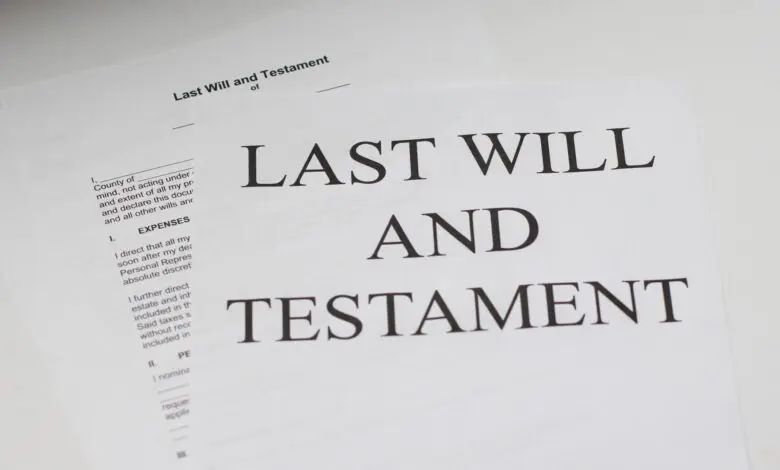The rise in unregulated wills and the horrors they leave behind
This summer, the CMA launched an investigation into potential law breaking in will writing, particularly from unregulated providers. Nicola Weldon, partner and head of private client at Ellisons Solicitors, delves into how the problems these unregulated wills leave behind are often not known until years later

Register to get 1 free article
Reveal the article below by registering for our email newsletter.
Want unlimited access? View Plans
Already have an account? Sign in
Of all the scandals of the last two decades, one is only now rearing its head. For years, UK adults have been encouraged to write a will to ensure their final wishes are known and laid out clearly. But with many options – and the internet – open to them, it seems qualified lawyers aren’t the only people who have been helping to draw them up.
Unregulated will writers boast that they are cheaper, faster, and on the face of it, genuine and legitimate. While they look like a good idea in the short term, some are offering advice that is actually detrimental to their client and their family.
The industry has been aware of their operations for a while, the consequences of using them is only now coming to light as people who have used their services are now passing away. It can only be then that their arrangements are unravelled and problems identified.
One misplaced piece of advice from unregulated will writers that was noticed time and again was for the will holder to put their house in a trust to avoid inheritance tax. However, there are rules which mean that these types of arrangements often fail to work. Much of the time it seems these arrangements are also being sold as a way for people to avoid paying care home fees. Such arrangements can be classed as deliberate deprivation of assets and can leave families having to fund their loved one’s care fees, paying up to thousands of pounds after they die to try and amend.
Another issue that comes with an unregulated will: those who think they may stand to inherit upon the holder’s death will get a shock when the will bars them from inheriting anything from the estate. Years later, the problem may still not be resolved, leading to the estate being left in limbo.
There is a misconception that not only do unregulated wills writers cost less money to employ, but that they have the same level of experience and training as a lawyer. This not only means your will may be invalid, but they also don’t have the same duty of care as a regulated lawyer. This is what can lead to clients being oversold documents that they simply don’t need.
Meanwhile, experienced lawyers have extensive legal knowledge and expertise so that they can prepare a will tailored exactly to the client’s needs and circumstances. This would include spending time ascertaining the client’s financial and personal affairs, as well as advising on any potential problems that may arise. For example, if a vulnerable elderly person wants to make a will, the lawyer ensures they are supported to put forward their actual wishes. If there is any possibility of the person not having the capacity to make a will or they are being put under undue pressure from others looking to gain, the lawyer can deal with these situations and arrange for capacity assessments to be carried out where necessary. Steps like these are really important to ensure that a will is upheld in the event of a claim against an estate.
In addition, it has been found that unregulated wills are not as cheap as they seem; with lawyers, you give a fee for the work to be completed, and in most cases, won’t be charged for the firm to hold the will. While this is common practice across most law firms, something as simple as holding the will as executor will incur add-on charges by an unregulated provider.
On top of that, law firms are required to have professional indemnity insurance, which protects the client if something goes wrong, and in the event that a law firm goes out of business, all documents are passed to a successor practice. When an unregulated will writer goes out of business, the documents held by them can seemingly vanish into thin air.
Firms who hold a Lexcel accreditation are also audited externally to ensure the clients are protected, whereas unregulated will writers aren’t.
People are being taken advantage of, and with an estimated 60% of UK adults still with no will, ensuring that they have the right advice is more important than ever.
The CMA is rightly looking at this situation to see what can be done to protect people. Unfortunately, for many it is too late.







